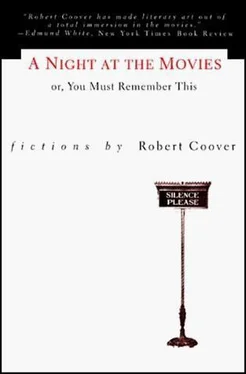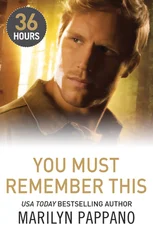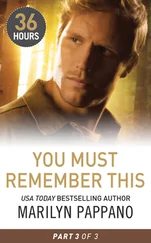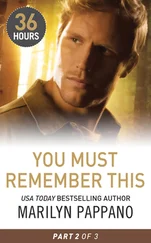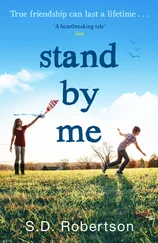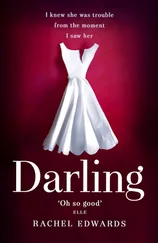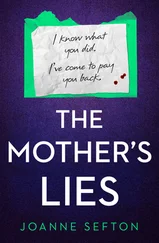Robert Coover - A Night at the Movies Or, You Must Remember This
Здесь есть возможность читать онлайн «Robert Coover - A Night at the Movies Or, You Must Remember This» весь текст электронной книги совершенно бесплатно (целиком полную версию без сокращений). В некоторых случаях можно слушать аудио, скачать через торрент в формате fb2 и присутствует краткое содержание. Год выпуска: 1997, Издательство: Dalkey Archive Press, Жанр: Современная проза, на английском языке. Описание произведения, (предисловие) а так же отзывы посетителей доступны на портале библиотеки ЛибКат.
- Название:A Night at the Movies Or, You Must Remember This
- Автор:
- Издательство:Dalkey Archive Press
- Жанр:
- Год:1997
- ISBN:нет данных
- Рейтинг книги:4 / 5. Голосов: 1
-
Избранное:Добавить в избранное
- Отзывы:
-
Ваша оценка:
- 80
- 1
- 2
- 3
- 4
- 5
A Night at the Movies Or, You Must Remember This: краткое содержание, описание и аннотация
Предлагаем к чтению аннотацию, описание, краткое содержание или предисловие (зависит от того, что написал сам автор книги «A Night at the Movies Or, You Must Remember This»). Если вы не нашли необходимую информацию о книге — напишите в комментариях, мы постараемся отыскать её.
A Night at the Movies Or, You Must Remember This — читать онлайн бесплатно полную книгу (весь текст) целиком
Ниже представлен текст книги, разбитый по страницам. Система сохранения места последней прочитанной страницы, позволяет с удобством читать онлайн бесплатно книгу «A Night at the Movies Or, You Must Remember This», без необходимости каждый раз заново искать на чём Вы остановились. Поставьте закладку, и сможете в любой момент перейти на страницу, на которой закончили чтение.
Интервал:
Закладка:
Charlie creeps miserably away, holding the douche bag to his thumped head: the policeman has sent him into the kitchen where the large bald-headed man with the napkin under his chin is waiting for him. The man tears away the douche bag — no longer a douche bag, in fact, but somehow now a rabbit with its head cut off — and swats him with the bloody end of it. The blow sends Charlie tumbling head over heels into a sideboard stacked with white dishes which come clattering down on him. Charlie struggles dizzily to his feet, his trousers binding his ankles, peers around for his hat and takes another blow from the rabbit, a ferocious stroke across the shoulders that rockets him into the woodpile, sending the logs flying and splintering, bringing down fire tools and pots and pans, cracking the tiles in the wall. The fire has died down and shadows crowd up around him. Out of these shadows now rocks the fat man, swinging the beheaded rabbit menacingly by its hind paws. Charlie scrambles toward a table, but before he can slip under it he is caught with a blow that whips him upside down, a kick to the belly that doubles him up, another to the face that arches him backward and sprinkles the tablecloth with a spray of blood. The fat man yanks at the tablecloth, bringing everything on top of it down on Charlie: a buffeting avalanche of plates and glasses, mashed potatoes, soup and custard pies, knives, forks, and butter dishes, mustard pots, gravy bowls. Charlie, his face puffing up, lies there in the garbage, almost unable to move. The fat man rises over him now like some bloated colossus in shirtsleeves and suspenders, his bald head high above, near the ceiling somewhere, lost in the shadows. The man rears back and brings the headless rabbit down punishingly on Charlie, pounding him again and again, up and down his ragged body, Charlie rolling around in a syrupy tangle of trousers and tablecloth, soup, piss, and pies, unable even to defend himself now, the blows raining down — not so much separate blows, as a single blow repeated over and over as though on an endless loop: the mighty backswing, the whipping downstroke, the bruising wallop and splattering blood, each backswing a kind of reverse of the downstroke, the rabbit seeming almost to suck back its own blood on the upswing, replenishing itself as it were for the next blow, Charlie jerking spasmodically from one side to the other as though in the grip of a violent fit of hiccups, his own blood and tears ebbing and flowing with each spasm, the debris around him sliding back and forth as though choreographed. The only difference from one blow to the next is the increase of anguish in Charlie's eyes, the intensifying of terror. Slowly, even as the blows fall steadily, almost mechanically, small changes begin to occur: One of Charlie's arms pushes sluggishly out of the pattern. His body gradually rotates until he is on his side, on his belly, on his hands and knees, struggling upwards. One foot strains forward under his body, knocks a dancing fork askew. The fat man's strokes continue as before — up, back, forward, down, up, back, forward, down — but Charlie, as though clawing his way through an atmosphere as thick as custard pie, is gradually dragging himself out from under, gaining an inch here, reaching out two inches there, slowly picking up momentum, until at last he is able to wrench free, snatch up his pants, and hurl himself through the kitchen door.
He lies there for a while in the next room, choking and wheezing, his battered limbs awry. The room is dark, lit only by a few distant candles, but he can see that he is back in the library again. It is immaculate, everything in it — everything except himself — restored to its former condition. The books are in their shelves, the paintings back up on the walls, the mirrors whole and ashtrays upright, the Oriental carpets unlittered. Even the clocks are all working again, the old grandfather clock's brass pendulum flashing rhythmic pinprick signals as it reflects in its steady swing the soft flickering glow of the candles. The candles surround a closed coffin. Agleam with high polish and candlelight, it is the only object clearly visible in the darkened room. Beyond it: a faint thin fog of gray light from a far door ajar. Charlie, unable to stand, drags himself toward that door across the tightly woven carpets, but as he nears the coffin, he freezes, his bloodied mouth agape: the lid is opening! Just a crack at first, a quivering suggestion merely of something about to happen, but slowly the crack widens, releasing the blackness within, a kind of pool of absolute darkness leaking out, making the candles dip and gutter — and then a hand: white, gnarled, emaciated, tremulously pressing the lid back. Just that hand, and the blackness, and the rising lid. Charlie watches, stupefied, as the head emerges, weaving unsteadily as if unhinged. It is the old man's head with its white goatee, wearing its top hat still and its gleaming pince-nez, but greatly shrunken, white as chalk, and with empty shadowy craters where its eyes should be. The head swivels stiffly as though trying to locate itself, the lips drawn back in a rigid grin, exposing the spiky teeth — then suddenly the hand loses its grip: the lid comes crashing down, severing the head from its neck. The head drops to the carpet. There is a dim candlelit pause. Charlie holds his breath. Then, once more, the lid begins to open. Again there is a leakage of blackness from within, again the appearance of a pale shriveled hand. Again the candles flare and dip. This time the lid opens all the way back, spilling flowers and dousing candles in the final clumsy arc of its fall. The headless body of the old man rises from the casket in its formal black suit. It moves stiffly, ceremoniously, lifting one limb out and then another. It lowers its feet to the floor, stands rigidly free from the casket, tipping from side to side. It reaches out blindly, lifts its foot, steps on its own grinning head: the head rolls, the body's feet fly up in the air, and it falls — splat! — — on its backside on the Oriental carpet. Charlie, eyes squeezed shut, arms and legs churning, reaches the half-open door and, without looking back, pitches on through.
He is back where he began. But the checkered marble floor where he lies is dulled now with dust, the hallway itself suffused in a granular, almost unearthly, pallor. The mirrors reflect nothing, there is no sheen on the broad balustrade, and spiderwebs now loop and raddle from the chandelier, the staircase and potted plants, the hanging lady. He peers up at her through swollen eyes. She dangles limply from the pullcord noose, inert and wizened, though still disquietingly beautiful, wrapped in long tangled skeins of hair and the lacy moth-eaten gown. Has so much time passed? Charlie shudders. He grips the doorframe, pulls himself to his feet, then shuffles, shackled by his fallen trousers, to a table in one corner, taking loose swinging swipes as he goes at the dusky nets of web and dust. With great effort, he drags the table out of the corner, pushes it under the woman. He leans wearily against the table a moment, looking around, spies a chair tipped over near the fallen deer's head, the head mossy now, its glass eyes furred with dust, its antlers enmeshed in cat's cradles of ropy webs and dried rose stems. He hauls the chair out of the debris, stirring puffs of coiling dust, sets it on the table. Then he pulls up his baggy trousers, crawls up onto the table himself, steadies the chair, mounts it. He can reach the lady now, but not the noose. He sighs, steps down again, his movements sluggish and ungainly. He finds a plant stand large enough to hold the chair, dumps the dead plant to the floor, sets the stand on the table. He climbs up, lifts the chair onto the plant stand. But there is not enough room for him now on the plant stand, so he lowers the chair to the table, crawls up on the plant stand, brings the chair up after him. The light in the hallway has been fading, as though losing itself in the dust and webs: it is hard now to see more than a few feet away. Even as he clambers up on the plant stand, the table is disappearing into the gathering dimness below. He hesitates, weaving dizzily, but braces himself, sets the chair on the stand between his legs, and crawls up on it, the whole apparatus rocking dangerously with each movement. He kneels up there for a moment, unable even to open his eyes. Then he does open them and, gazing fixedly at the hanging lady, rises totteringly to his feet. He reaches for the noose. A chair leg wobbles to the edge of the plant stand, tips over. Charlie grabs the woman, his pants falling to his ankles. The chair falls away into nothingness, the plant stand following after. The lady's dress gives way: Charlie slips to her waist; reflexively, he locks his knees around her as well. He can see nothing below him — nor above him: the balustrade too has vanished into the deepening shadows, the darkness irising in on him like the onset of blindness. He can see only the hanging lady whose ravaged white gown in his desperate grasp is flaking away like pie crust and whose neck is stretching in its noose like stiff taffy. He clings to her, pants adroop, tears in his eyes, shadows creeping over his face like bruises, gazing out into the encircling gloom with a look of anguish and bewilderment, as though to ask: What kind of place is this? Who took the light away? And why is everybody laughing?
Читать дальшеИнтервал:
Закладка:
Похожие книги на «A Night at the Movies Or, You Must Remember This»
Представляем Вашему вниманию похожие книги на «A Night at the Movies Or, You Must Remember This» списком для выбора. Мы отобрали схожую по названию и смыслу литературу в надежде предоставить читателям больше вариантов отыскать новые, интересные, ещё непрочитанные произведения.
Обсуждение, отзывы о книге «A Night at the Movies Or, You Must Remember This» и просто собственные мнения читателей. Оставьте ваши комментарии, напишите, что Вы думаете о произведении, его смысле или главных героях. Укажите что конкретно понравилось, а что нет, и почему Вы так считаете.
